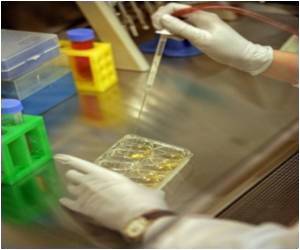A new research led by the University of Leeds has found that common drugs used to treat conditions such as diabetes and obesity can be used to successfully treat hepatitis C virus infection.

"We're very excited about these findings. These drugs are already on the market, and whilst substantial clinical trials still need to take place before they can be used to treat hepatitis C infection, we think it could be an enormous step forward in the battle against the virus," said Professor Mark Harris from the University's Faculty of Biological Sciences.
Drugs such as Metformin and AICAR work by stimulating an enzyme called AMP kinase (AMPK) which regulates energy within our cells - the very enzyme that hepatitis C virus represses to enable it to replicate.
AMPK's usual function is to conserve the energy balance in cells, which it does by temporarily shutting down the production of lipids (fats) and membranes when it senses an increase in energy requirements.
Harris and his team have now shown that the hepatitis C virus switches off AMPK so that the cell continues production of lipids and membranes, both of which are vital to its survival.
"You'd expect AMPK to be activated when a cell becomes infected by a virus, because it would sense the increase in energy required to enable the virus to replicate. In such cases, AMPK would shut down certain functions of the cell temporarily until the cell's energy is rebalanced. We found that hepatitis C virus, because it needs lipids and membranes, causes the opposite to happen," Harris said.
Advertisement
The team will shortly embark on a small-scale clinical trial with The University of Nottingham. This will provide a greater evidence base upon which future clinical trials can be based.
Advertisement














